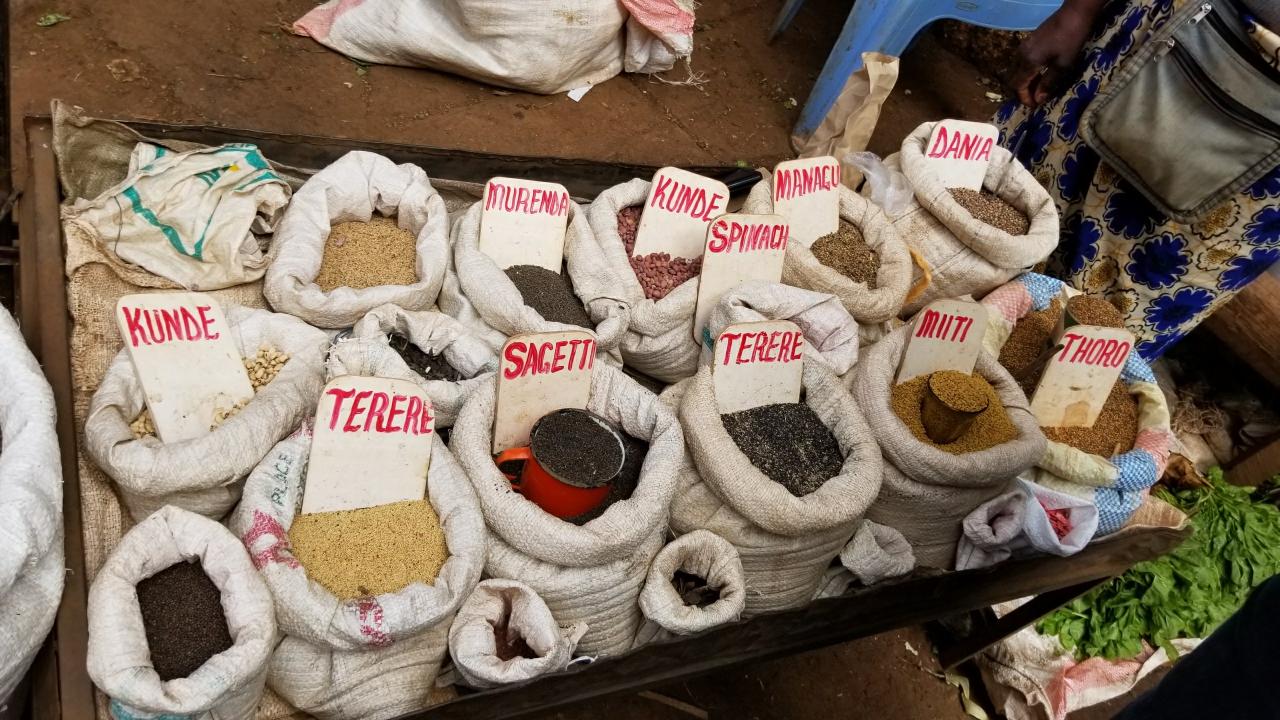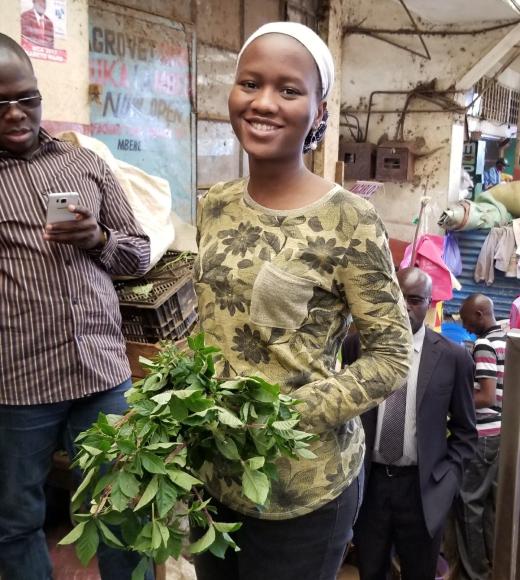
African Orphan Crops Consortium Sparks a Movement
A Decade of Work Potentially Benefits 700 Million People
The African Orphan Crops Consortium, or AOCC, launched with a lofty goal in 2013: to help local scientists develop more nutritious, productive and resilient varieties of commonly used but rarely studied crops to improve public health.
A decade in, the consortium has trained 161 crop scientists across the continent through the African Plant Breeding Academy, leading to the development of new crop varieties with the potential to feed and nourish 700 million people in of sub-Saharan Africa, according to an October report issued by the consortium.
“The mission of the program is to make nutritious African crops productive,” said Allen Van Deynze, director of the Seed Biotechnology Center at UC Davis and the AOCCs scientific director. “The goal is to have better varieties to allow farmers to go beyond sustenance.”
A goal to prevent stunting

The roots of AOCC began in part at UC Davis, when senior fellow and plant scientist Howard-Yana Shapiro began discussing ways to prevent nutritional stunting, which impairs growth and development in children, with Ibrahim Mayaki, then CEO of the African Unions Development arm, or AUDA-NEPAD. The consortium was founded to help local scientists improve the nutritional value of staple food crops.
“Stunted children do not reach their full potential, physically or mentally,” said Shapiro, the consortium’s founder. “The crops will be bred to improve the nutrition, yield, climatic resilience, pest and disease resistance, and efficiency of water and nutrient use.
The consortium has grown from six partners to 40 – representing government, industry, health, wildlife, genetic and other sectors – and serves as a pipeline for introducing local plant breeders to current technologies, strategies, tools and resources to create a pipeline for new crop varieties. “The key to the AOCC are the highly skilled plant breeders and scientists in African universities and government institutions” Shapiro said.
Focusing attention on different crops
The focus is on 101 so-called orphan crops, which are nutritious but have not benefitted from breeding attention and improvements.
“They are local crops, so they grow well,” said Van Deynze, who is also associate director of the UC Davis Plant Breeding Center. “With research, we can make them more productive and increase nutrition.”
The academy is coordinated by UC Davis and hosted by the Center for International Forestry Research, or CIFOR-World Agroforestry, in Nairobi. As of May 2023, the academy graduated 151 plant breeders from 28 African nations and 40 percent of the students have been women. Last year, it also launched a CRISPR course, training 10 scientists from 6 countries in gene editing.
“The academy has empowered crop improvement scientists with the knowledge, skills and tools to utilize the latest proven approaches and technologies in developing improved varieties with the traits that farmers want and consumers need,” said Rita Mumm, the consortium’s director of capacity building and mobilisation. “Collectively, these scientists represent a ‘movement’ toward nutritional security for Africans and an end to stunting.”
Other AOCC highlights:
- Academy students have developed 143 improved varieties of orphan crop plant cultivars.
- Academy alum have won nearly $174.8 million competitive grants and other funding for crop improvement and training.
- Academy alum have published more than 665 peer-reviewed papers.
- Breeders from the second plant breeding class formed the African Plant Breeders Association, which has 400 members, creating a community of practice.
- AOCC and public institutions have delivered genomic sequences on 75 orphan crops.
Media Resources
- Allen Van Deynze, UC Davis Seed Biotechnology Center and African Orphan Crops Consortium, avandeynze@ucdavis.edu.
- Emily C. Dooley, College of Agricultural and Environmental Sciences, ecdooley@ucdavis.edu.